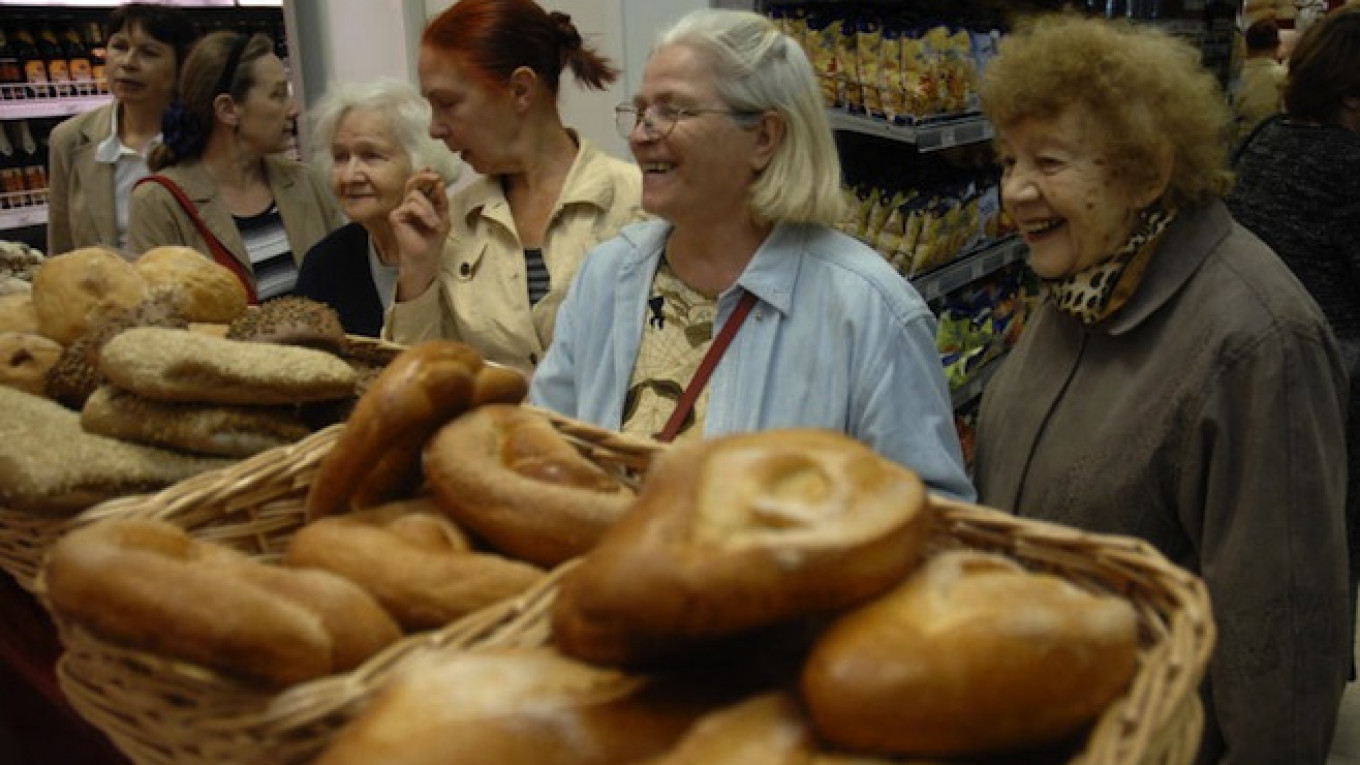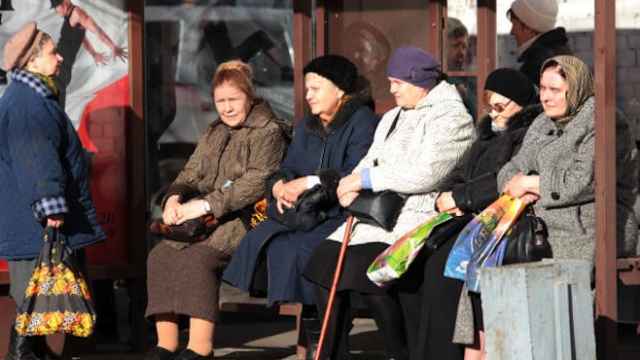Russia's Central Bank has proposed using private pension funds to build 200 vegetable storage warehouses in order to battle high inflation and boost domestic agriculture, news agency TASS reported Wednesday, citing a top bank official.
The initiative is part of a broader Central Bank plan submitted to the State Duma at the end of May proposing that Russia's private pension funds be used to improve agricultural infrastructure, Sergei Shvetsov, first deputy chairman at the Central Bank, told TASS.
According to Shvetsov, the investment strategy will help reduce the Russian economy's dependence on foreign markets and slow down inflation, which stood at 15.8 percent in May compared with the same month last year, according to data from state statistics service Rosstat.
High inflation has been driven in part by high food prices, which rose sharply following Russia's ban on select U.S and EU food products in August last year in response to Western sanctions over the Ukraine crisis.
The National Association of Nongovernmental Pension Funds, a self-regulatory professional association of members of the Russian pension market, has voiced support for the Central Bank's initiative.
"Under the conditions of food embargo, the demand for domestic products is even higher than usual," Valery Vinogradov, the adviser to the president of the fund association, told TASS.
Under Russia's pension system, companies pay 16 percent of an employee's income into a state pension fund, from which 6 percent is then diverted into private funds if the employee requests it. In 2014 Russia froze contributions into the private funds during an overhaul of the system.
Shortly thereafter, Russia began to use the funds to pay for the annexation of Crimea and develop the economy as Western sanctions and low oil prices strangled investment and squeezed the state budget.
A Message from The Moscow Times:
Dear readers,
We are facing unprecedented challenges. Russia's Prosecutor General's Office has designated The Moscow Times as an "undesirable" organization, criminalizing our work and putting our staff at risk of prosecution. This follows our earlier unjust labeling as a "foreign agent."
These actions are direct attempts to silence independent journalism in Russia. The authorities claim our work "discredits the decisions of the Russian leadership." We see things differently: we strive to provide accurate, unbiased reporting on Russia.
We, the journalists of The Moscow Times, refuse to be silenced. But to continue our work, we need your help.
Your support, no matter how small, makes a world of difference. If you can, please support us monthly starting from just $2. It's quick to set up, and every contribution makes a significant impact.
By supporting The Moscow Times, you're defending open, independent journalism in the face of repression. Thank you for standing with us.
Remind me later.






